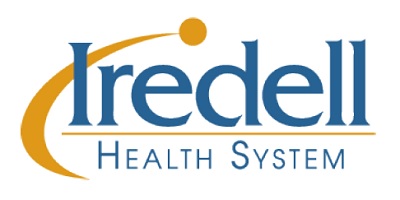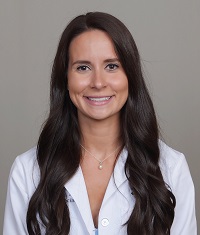
Special to Iredell Free News
Summer vacation is quickly coming to an end. Returning to school can be an exciting and overwhelming time for parents and children.

It’s a significant transition that comes with various challenges and adjustments.
“Back-to-school-time can be stressful for both parents and children as it is often a time for change. You and your child experience new teachers, new classmates, and a new schedule. It can be difficult to establish a routine again and find a balance between what is expected from the child,” said Dr. Judith Prairie, a physician at Family Care Center of Mooresville.
However, with all the changes and transitions the school year brings, it’s important not to lose sight of what’s most important – your child’s health. Prairie shared the following recommendations and tips for a healthy, successful start to the school year:
Schedule an annual physical
An annual physical, or check-up, with your child’s doctor will ensure your child is healthy before heading back to school.
“Scheduling an annual physical can be done at any time, but ideally before the school year so your child’s doctor can make sure your child is on track and prepared to start the school year. If your child plays sports, your child’s doctor can use this time to talk to you about common injuries and how to prevent them,” said Prairie.
Stay up-to-date on vaccines
“Vaccines are important to protect your child’s life and provide immunity to children before they are potentially exposed to diseases like hepatitis B, measles, mumps, polio, and others. Researchers have proven time and time again that vaccines are safe and effective for children and the public,” said Prairie.
North Carolina law requires all children in the state to receive certain immunizations. You can ask your child’s doctor if any vaccinations are needed at their annual physical.
The link below lists vaccination requirements for school-aged children in North Carolina: immunization.dph.ncdhhs.gov/schools/k-12.htm
Make sleep a priority
Being tired can impact your child’s academic ability.
“According to the CDC, most American children and teenagers do not sleep enough. Adhering to sleep schedules helps students perform at their best. This can, in turn, lead to improved attention, learning, memory, and overall physical and mental health,” said Prairie.
Preschoolers, ages 3-5, require 10 to 13 hours of sleep. Children, ages 6-12, should get 9 to 12 hours of sleep, and teenagers, ages 13-18, need 8 to 10 hours.
Prairie recommends adjusting your child’s sleep schedule in increments about one or two weeks before school starts.
“I always tell parents to have their child go to sleep 15 minutes earlier than they have been during the summer and wake up 15 minutes earlier. They can continue to adjust their sleep and wake times in 15-minute increments every few days until their child is sleeping and waking at the right times for school,” she said.
You should also establish a good bedtime routine to help your child wind down for the day. A warm shower, avoiding electronics before bed, reading with a parent or individually, journaling, or meditating, are a few examples to help your child get ready for bed.
Focus on nutrition
“It is important to make sure your child eats healthy to maintain a healthy height and weight, prevent chronic diseases, build strong bones and teeth, maintain stable energy throughout the day, and improve mental health,” said Prairie.
“I always tell my patients and parents to make it easy for children to choose healthy snacks by having fresh fruit and vegetables that are already washed and ready to eat, if they can. Other healthy options include yogurt, nuts, peanut butter and celery, and crackers and cheese,” she added.
To build healthy eating habits, you can pack the healthy foods Prairie recommended in your child’s lunchbox.
Be a partner in your child’s mental and emotional health
A child heading back to school may have the same feelings of apprehension and worry that an adult has when starting a new job. As a parent, you can help make that first day a little easier. You should discuss any worries or excitement your child may have about returning to school and offer your reassurance.
You should continue this open communication and make it a habit to check up on your child’s mental wellbeing throughout the school year.
“Mental health issues are on the rise in our children. I encourage all of my parents to regularly check on their children whether they are showing signs of declining mental wellbeing or not. In doing so, it encourages an open and honest relationship between parents and child. It will also help your child develop friendships, learn new things, and do well in school. This also helps lay a foundation for your child’s wellbeing into adulthood,” said Prairie.
LEARN MORE
Prairie practices at the Family Care Center of Mooresville, located on the second floor of Iredell Mooresville at 653 Bluefield Road. She treats patients of all ages, infants to seniors. If you would like to schedule an appointment with Dr. Judith Prairie, please call 704-360-6580.
About Iredell Health System
Iredell Health System includes Iredell Memorial Hospital; Iredell Mooresville; two urgent care centers; Iredell Home Health; Iredell Wound Care & Hyperbaric Center; Community and Corporate Wellness; Occupational Medicine; the Iredell Physician Network and more. Iredell Memorial Hospital is the largest and only nonprofit hospital in Iredell County. The comprehensive healthcare facility has 247 beds; more than 1,800 employees; and has 260 physicians representing various specialties. Centers of excellence include Women’s and Children’s; Cardiovascular; Cancer; Surgical Services and Wellness & Prevention. The Health System’s second campus, Iredell Mooresville, is home to the area’s only 24-hour urgent care facility, as well as an ambulatory surgery center, imaging center, rehabilitation services, and physician practices. The mission of Iredell Health System is to inspire wellbeing. For a comprehensive list of services and programs, visit www.iredellhealth.org.




As a matter of law, if the bona fide religious beliefs of the parent are contrary to the immunization requirements of North Carolina, the child shall be exempt from the immunization requirements of schools.
Upon submission of a written statement of the bona fide religious beliefs and opposition to the immunization requirements, the child may attend the school.
This applies to college students, too.
See NCGS § 130A-157.